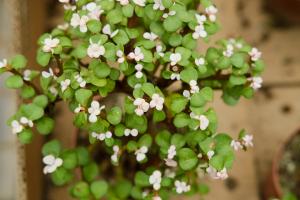Are Regular Walnut Trees Poisonous to Plants?
Walnut trees are known for their delicious nuts which are a favorite of many people around the world. However, there is a lot of debate about whether or not regular walnut trees can be poisonous to plants, especially in relation to their ability to release allelopathic chemicals. This article takes a closer look at the research and evidence surrounding this topic.
What are allelopathic chemicals?
Allelopathic chemicals are natural toxins that are produced by some plants as a defense mechanism against predators or competitors. These chemicals can be released through different means, such as through the roots, leaves, or seeds. When released, they can affect the behavior, growth, or survival of other plants that are close by.
Do regular walnut trees produce allelopathic chemicals?
Yes, regular walnut trees are known to produce and release allelopathic chemicals. One of the main chemicals produced by walnut trees is called juglone, which is toxic to many plants. Juglone is mainly released through the roots, so it affects plants that are growing nearby or have their roots in contact with the same soil. In addition, juglone can linger in the soil for a long time, making it difficult for other plants to grow in the same location.
How does juglone affect other plants?
Juglone affects other plants in different ways, depending on the level of exposure and the plant species. In general, juglone inhibits the growth of roots and shoots, damages cell membranes, and disrupts metabolic processes. This can lead to reduced growth, wilting, chlorosis, or even death of the affected plants. Some plants are more susceptible to juglone toxicity than others, depending on their sensitivity to the chemical and their ability to detoxify or tolerate it.
What plants are resistant or susceptible to juglone?
There is a large variation among plant species in their susceptibility to juglone toxicity. Some plants are able to tolerate or even thrive in the presence of juglone, while others are highly sensitive and can be killed by small amounts of the chemical. Generally, plants that are resistant to juglone have a thicker cuticle or epidermis, larger root systems, or higher levels of antioxidants and enzymes that can detoxify the chemical. Some examples of juglone-resistant plants include black raspberry, elderberry, onion, garlic, rhubarb, and grapevines. On the other hand, plants that are highly susceptible to juglone toxicity include tomatoes, peppers, eggplants, potatoes, and many ornamental flowers.
How can we avoid or minimize the allelopathic effect of walnut trees?
If you are planning to grow other plants near walnut trees or on walnut-rich soil, it is important to choose the right plants that are resistant to juglone. You can also use raised beds, containers, or other physical barriers to prevent the roots of sensitive plants from coming into contact with the walnut roots. Adding organic matter or compost to the soil can help alleviate the toxicity of juglone and improve the growth of other plants. In addition, pruning or removing some of the branches or roots of the walnut tree can reduce the amount of juglone released into the soil.
Conclusion
Regular walnut trees can be potentially harmful to other plants due to their ability to release allelopathic chemicals, especially juglone. Therefore, it is important to select the right plants and soil conditions if you want to grow a diverse garden or landscape in the presence of walnut trees. By understanding the effect of juglone and taking appropriate measures, you can create a healthy and resilient ecosystem that benefits both the walnut trees and other plants.

 how many times do yo...
how many times do yo... how many planted tre...
how many planted tre... how many pine trees ...
how many pine trees ... how many pecan trees...
how many pecan trees... how many plants comp...
how many plants comp... how many plants can ...
how many plants can ... how many plants and ...
how many plants and ... how many pepper plan...
how many pepper plan...






























